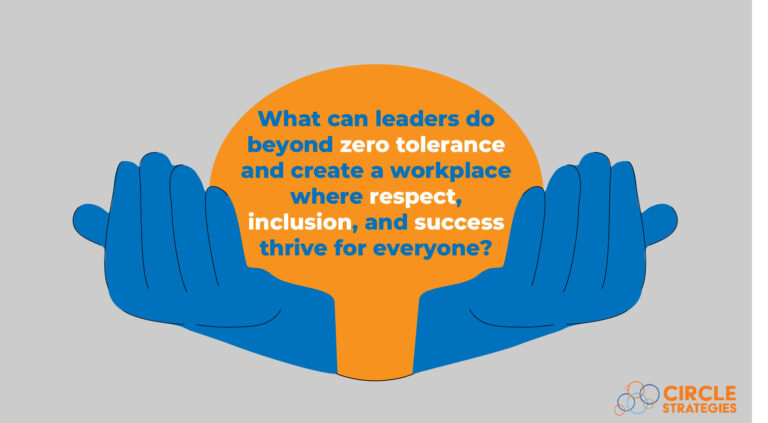What makes great leaders is the ability to recognize that fostering a culture of respect and inclusion isn’t just a compliance obligation, but a necessary strategic advantage. By prioritizing respect and inclusion, leaders not only safeguard their organizations against harassment and discrimination but also unlock their team’s full potential. This mindset is transformative, creating an environment where employees feel safe, valued, and motivated to contribute their best work.

Why Respect and Inclusion Matter
Respect and inclusion form the foundation of a healthy workplace. When employees feel respected, they are more engaged, satisfied, and productive. Research from the Society for Human Resource Management (SHRM) highlights that organizations with inclusive cultures experience a 27% higher profitability compared to those that don’t. SHRM Study on Inclusion and Profitability
Moreover, fostering inclusion goes beyond compliance with anti-discrimination laws. A study by Deloitte found that inclusive workplaces are six times more likely to be innovative. This is because diverse perspectives foster creativity and lead to better problem-solving. Deloitte Report on Inclusion and Innovation
There is a common misconception around inclusion that “to include means to accept”, however what is more accurate to say is “to include means to accept and accommodate.” Only a small portion of workers who have disabilities share them due to a lack of accurate and available accommodations. To accept the differences of others is never enough. Leaders must also take the initiative to create active change to ensure the entire company has the tools and training needed to ensure everyone is able to work to their fullest potential.
Leadership’s Role in Driving Change:
Building a culture of respect and inclusion starts at the top. Leaders set the tone for acceptable behaviors and values the organization upholds. Here are actionable strategies leaders can employ:
-
Establish Clear Policies and Training:
Clear anti-harassment and anti-discrimination policies are a must, but policies alone are insufficient. Training programs that educate employees and managers about unconscious bias, cultural competence, and conflict resolution are essential. According to McKinsey, organizations that invest in diversity training see a 20% improvement in employee retention. -
Model Inclusive Behavior:
Leadership’s behavior sets the standard for others. Actively seeking diverse perspectives in decision-making, showing empathy in interactions, and addressing inappropriate behavior promptly are hallmarks of a leader who values respect and inclusion. -
Create Channels for Open Communication:
Employees need to feel safe to voice concerns or report issues without fear of retaliation. Anonymous reporting systems, regular feedback sessions, and transparent follow-up on reported issues can build trust. -
Accessible Trainings and Accommodations:
Employees as well as management need to have available trainings and accommodations needed to ensure that every employee is capable of working to their greatest potential. These trainings can cover mental disabilities, ethical differences, leadership commutations.
The Organizational Benefits:
When respect and inclusion are prioritized, the benefits ripple throughout the organization:
-
Stronger Teams: Collaboration thrives when employees trust and respect one another. Teams become more cohesive and effective.
-
Increased Innovation: Inclusive environments encourage diverse ideas, leading to groundbreaking solutions.
-
Enhanced Reputation: Companies known for their inclusive cultures attract top talent and earn customer loyalty.
Call to Action for Leaders:
Leaders must embrace the mindset that inclusion isn’t just a program or initiative; it’s a core value that shapes every aspect of the organization. By embedding respect and inclusion into their leadership practices, they create workplaces where everyone can thrive—and in doing so, they set their organizations on a path to lasting success.
Conclusion:
Being a leader is more than just delegating tasks, it is about ensuring every employee is treated equally and respected. This can come in the form of accommodations, discrimination protection, creating channels of open communication, and modeling behavior as well as many others. Leaders must take the initiative to more than just a zero-tolerance policy. Schedule a free consultation if you want to learn more
